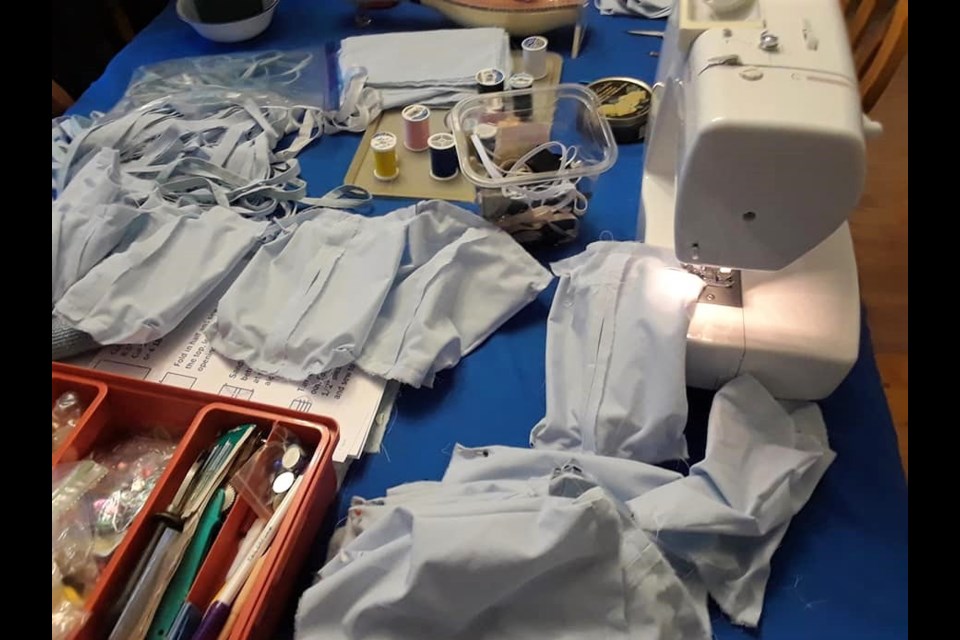THUNDER BAY – While empty toilet paper shelves have grabbed headlines and attention, another less-publicized shortage is more illustrative of what’s happening on the front lines of the battle against COVID-19: sewing elastic has become a hot commodity, for use in homemade face masks.
Medical advice on the use of cloth masks has shifted as the coronavirus pandemic has spread. The U.S. federal health agency, the CDC, recently recommended Americans wear homemade cloth masks in crowded public places. Canadian health authorities followed suit days later, after earlier discouraging the practice.
Health authorities have stressed homemade masks provide limited protection for the wearer, but can help stop the spread of droplets, protecting others.
Meanwhile, one group of volunteers in Thunder Bay is racing to produce thousands of cloth masks for health care workers. Ellen Davis, who is coordinating the effort through the Conmee Stitch and Craft Group, is straightforward: the homemade masks are less than ideal, but they’re better than nothing as health agencies run low on medical-grade personal protective equipment (PPE).
“Fabric masks are a crisis response option when other supplies have been exhausted,” she explains.
The masks the group is producing are intended to be used over top of surgical and N95 masks, or in everyday medical situations not involving suspected cases of COVID-19.
Health care workers are being asked to reuse medical-grade masks multiple times, Davis says. Cloth masks worn over top can be changed after each patient, extending the life of the approved masks. They can be washed and reused at the end of the day.
Davis says health care workers she speaks with are increasingly concerned about PPE shortages.
“They’re scared,” she says. “Everyday nursing and health care can be very messy. You don’t want saliva contact, blood contact. The everyday safety precautions you have been taught to take – those supplies aren’t available, or they’re in very short supply and being rationed.”
Davis, who previously worked in the home health care field, has marshalled volunteers through her Conmee sewing group to begin making masks from everyday materials. They’re producing an initial run of 1,500 masks, giving them out in packs of five to visiting home health care workers. That includes nurses, personal support workers, and home health care aides, Davis says.
The group plans to make thousands more. An individual recently donated fabric for a large order intended for workers at a cancer clinic.
The masks are made from two layers of cotton or cotton-polyester material, with an insert for an additional filter, and a pipe cleaner to fit the mask over the nose. Running low on sewing elastic, volunteers have sometimes had to improvise with spandex and other material.
The group has grown to include dozens of volunteers – sewers, cutters, and drivers who drop off and pick up masks and materials. While material shortages sometimes pose challenges, Davis says she’s amazed at the team’s efforts.
“They are getting really efficient at it,” she says of cutters. “I can drop off a garbage bag full of sheets, and in a day, I’ll have a stack of rectangles”
Community members interested in volunteering can sign up through the group’s Facebook page. Perhaps even more than extra hands, though, the group is looking for donations of material: sewing elastic, or leggings, tights, and other Spandex and Lycra fabric to make improvised elastic; cotton and cotton-polyester material such as bedsheets, broadcloth, and quilting material; and pipe cleaners. Donations can also be coordinated through their Facebook page.
